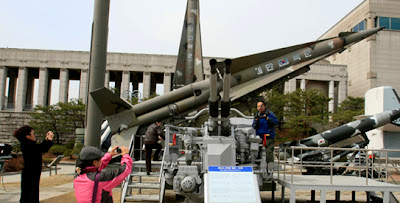Bangladeshi cricketers celebrate after winning the match during the one day international Asia Cup cricket match between Bangladesh and Sri Lanka at the Sher-e-Bangla National Cricket Stadium in Dhaka on Tuesday
DHAKA: Tamim Iqbal and Shakib Al Hasan smashed brisk half-centuries as Bangladesh qualified for the Asia Cup final to face Pakistan with a remarkable five-wicket victory over Sri Lanka in Dhaka on Tuesday.
Tamim celebrated his 23rd birthday with a 57-ball 59 and Shakib hit a 46-ball 56 as the hosts achieved the rain revised target of 212 with 17 balls to spare in the day-night match, watched by Bangladesh Prime Minister Sheikh Hasina.
Bangladesh’s victory — only their third over Sri Lanka in 30 one-day internationals — sees them through to meet Pakistan in the final on Thursday.
Pakistan topped the league with nine points from three matches, followed by Bangladesh (8/3), India (8/3) and Sri Lanka (0/3).
The hosts made it to the final as they beat India in the league match.
Bangladesh were struggling at 40-3 following two wickets from paceman Nuwan Kulasekara before Tamim and Shakib put on 76 for the fourth wicket to raise their team’s hopes.
Tamim was caught by Lahiru Thirimanne at point while attempting to cut off-spinner Sachithra Senanayake after hitting nine fours in his third successive half-century.
The hosts suffered another setback when Senanayake dismissed well-set Shakib, trapped leg-before after hitting seven fours.
But Nasir Hossain (36 not out) and Mohammad Mahmudullah (32 not out) added 77 runs for the unfinished sixth-wicket stand to steer their team home, much to the delight of a capacity crowd at the Sher-e-Bangla stadium.
Bangladesh earlier put in a disciplined bowling performance to restrict Sri Lanka to a modest total, with paceman Nazmul Hossain (3-32) and left-arm spinners Abdur Razzak (2-44) and Shakib (2-56) being the main wicket-takers.
Nazmul rocked Sri Lanka in his sharp six-over opening spell, removing skipper Mahela Jayawardene (five), Tillakaratne Dilshan (19) and Kumar Sangakkara (six) to send the tourists reeling at 32-3.
Chamara Kapugedera (62) and Thirimanne (48) steadied the innings with an 88-run stand for the fourth wicket, but were not allowed to score freely by the Bangladeshi bowlers.
Upul Tharanga was the other main scorer, scoring a 44-ball 48 with one six and five fours.
Fast bowler Mashrafe Mortaza was the other bowler to impress, conceding only 30 runs in his tight 9.5 overs.
Thirimanne hit just three fours in his 73-ball knock before he was stumped off Razzak, the ball rolling on to the wickets after hitting wicket-keeper Mushfiqur Rahim’s pad.
Kapugedera struck only four boundaries in a 92-ball knock for his eighth half-century in one-dayers before falling to a low catch in the covers by Shakib off Razzak.
DHAKA: Tamim Iqbal and Shakib Al Hasan smashed brisk half-centuries as Bangladesh qualified for the Asia Cup final to face Pakistan with a remarkable five-wicket victory over Sri Lanka in Dhaka on Tuesday.
Tamim celebrated his 23rd birthday with a 57-ball 59 and Shakib hit a 46-ball 56 as the hosts achieved the rain revised target of 212 with 17 balls to spare in the day-night match, watched by Bangladesh Prime Minister Sheikh Hasina.
Bangladesh’s victory — only their third over Sri Lanka in 30 one-day internationals — sees them through to meet Pakistan in the final on Thursday.
Pakistan topped the league with nine points from three matches, followed by Bangladesh (8/3), India (8/3) and Sri Lanka (0/3).
The hosts made it to the final as they beat India in the league match.
Bangladesh were struggling at 40-3 following two wickets from paceman Nuwan Kulasekara before Tamim and Shakib put on 76 for the fourth wicket to raise their team’s hopes.
Tamim was caught by Lahiru Thirimanne at point while attempting to cut off-spinner Sachithra Senanayake after hitting nine fours in his third successive half-century.
The hosts suffered another setback when Senanayake dismissed well-set Shakib, trapped leg-before after hitting seven fours.
But Nasir Hossain (36 not out) and Mohammad Mahmudullah (32 not out) added 77 runs for the unfinished sixth-wicket stand to steer their team home, much to the delight of a capacity crowd at the Sher-e-Bangla stadium.
Bangladesh earlier put in a disciplined bowling performance to restrict Sri Lanka to a modest total, with paceman Nazmul Hossain (3-32) and left-arm spinners Abdur Razzak (2-44) and Shakib (2-56) being the main wicket-takers.
Nazmul rocked Sri Lanka in his sharp six-over opening spell, removing skipper Mahela Jayawardene (five), Tillakaratne Dilshan (19) and Kumar Sangakkara (six) to send the tourists reeling at 32-3.
Chamara Kapugedera (62) and Thirimanne (48) steadied the innings with an 88-run stand for the fourth wicket, but were not allowed to score freely by the Bangladeshi bowlers.
Upul Tharanga was the other main scorer, scoring a 44-ball 48 with one six and five fours.
Fast bowler Mashrafe Mortaza was the other bowler to impress, conceding only 30 runs in his tight 9.5 overs.
Thirimanne hit just three fours in his 73-ball knock before he was stumped off Razzak, the ball rolling on to the wickets after hitting wicket-keeper Mushfiqur Rahim’s pad.
Kapugedera struck only four boundaries in a 92-ball knock for his eighth half-century in one-dayers before falling to a low catch in the covers by Shakib off Razzak.





